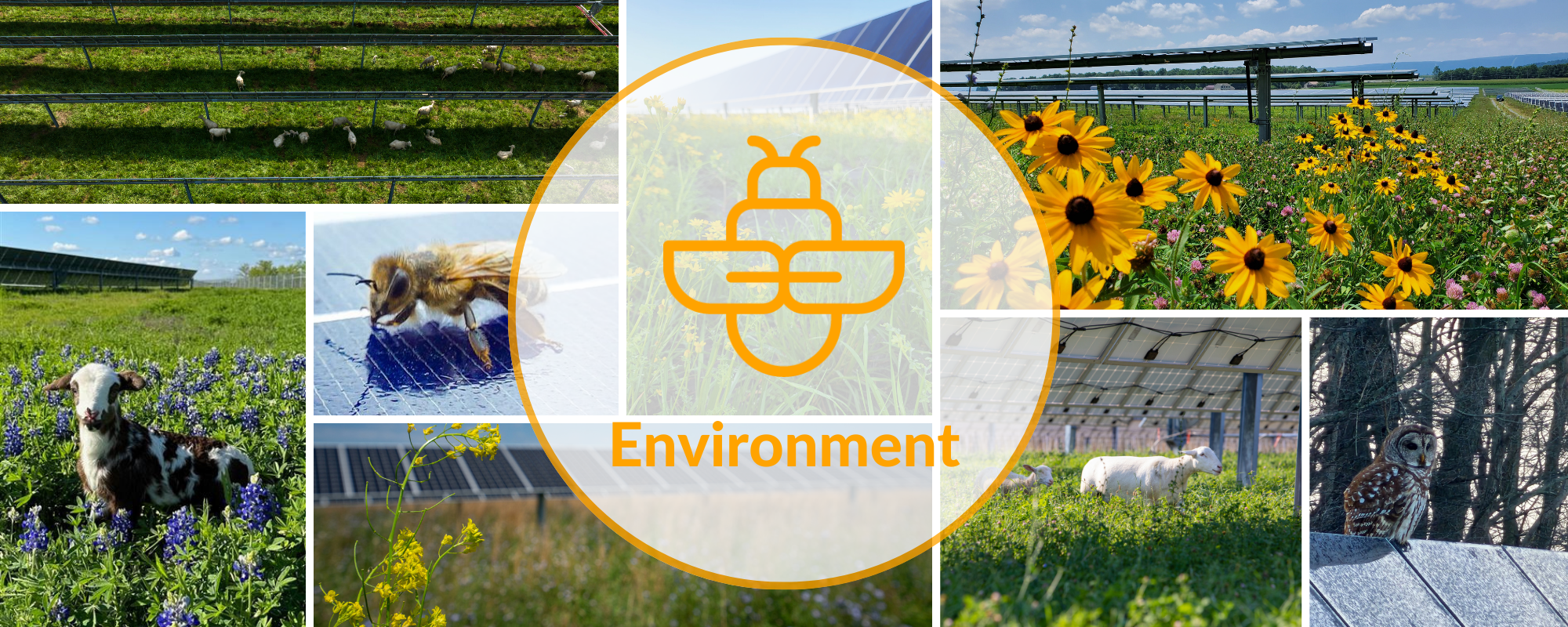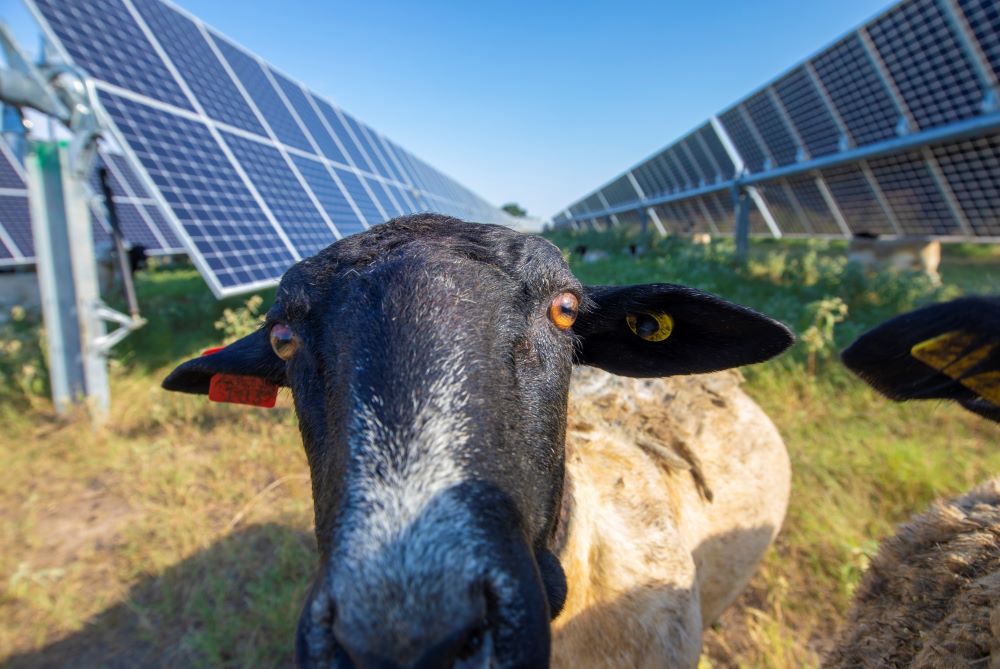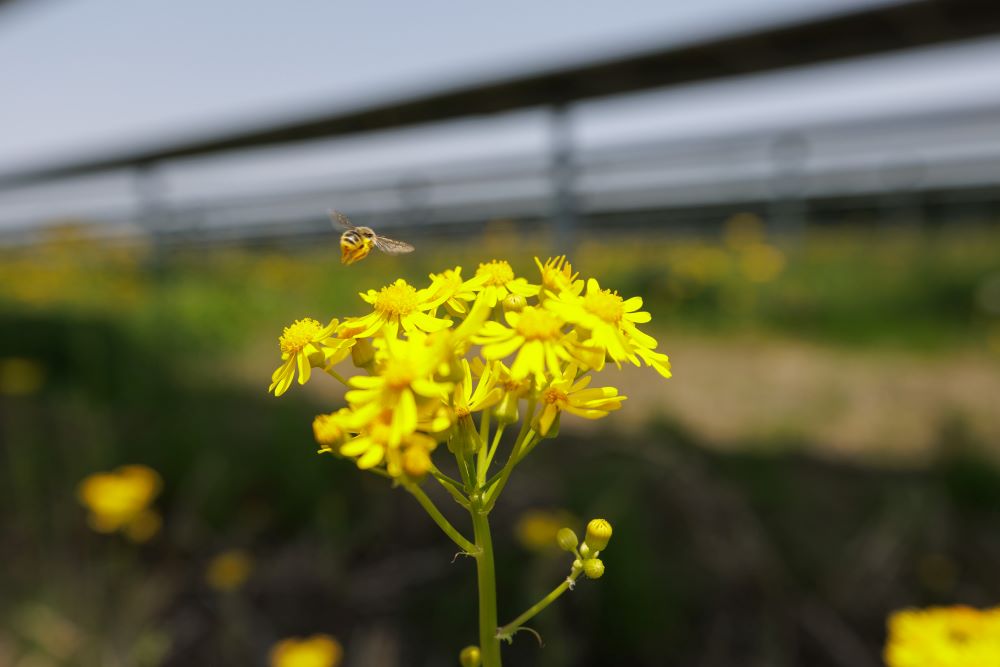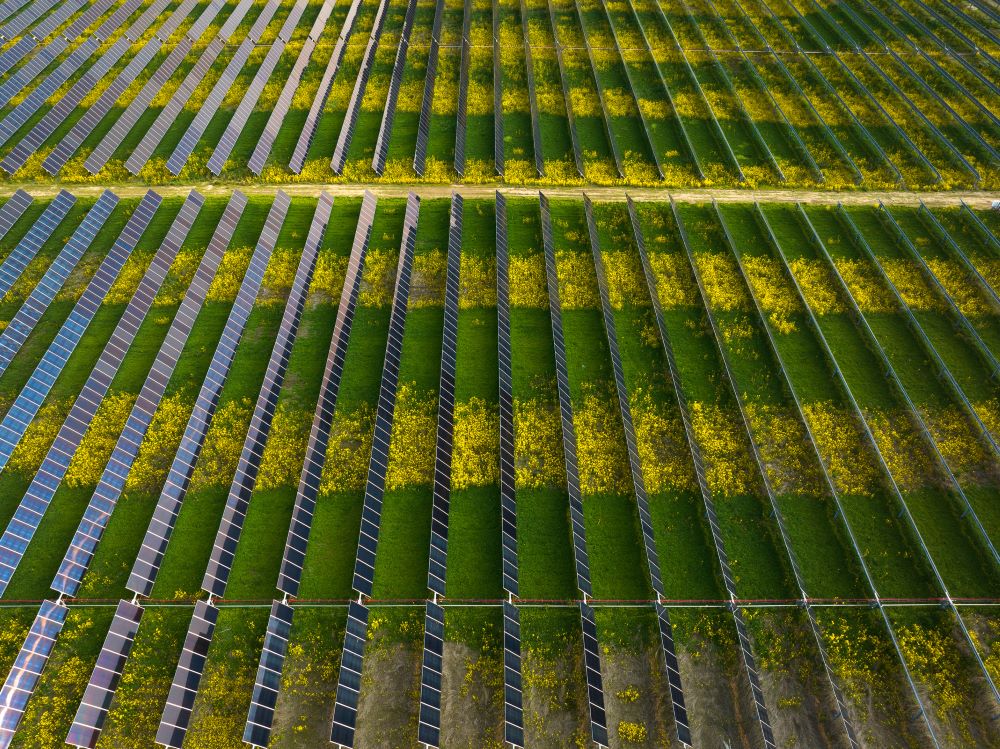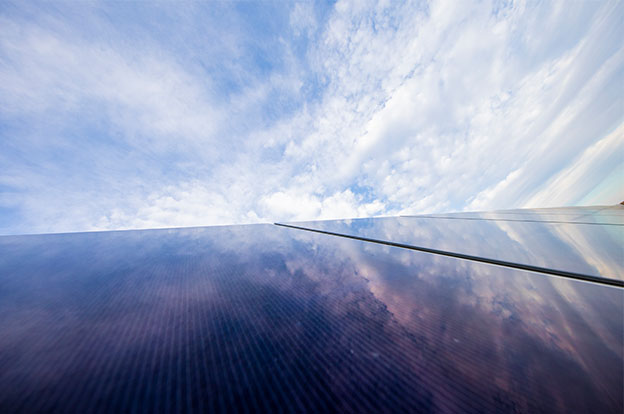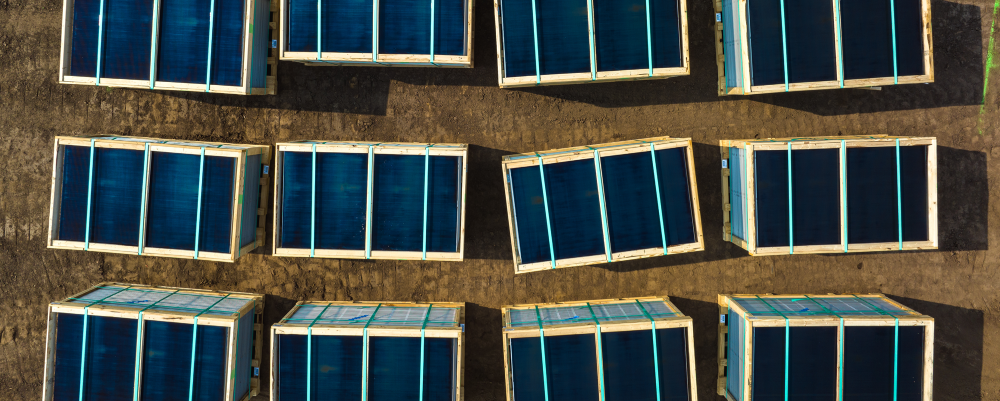Responsible Solar: Environmental Stewardship
We’re committed to restoring healthy air, protecting ecosystems, fostering biodiversity, improving waste management and circularity in the energy industry
Sustainable land management
Our dedication to a sustainable future goes beyond delivering safe and affordable energy.
As stewards of the land, we have developed a land management and biodiversity framework to support wildlife populations and habitat on our project sites. Through this framework, our solar farms become long-term homes for conservation, wildlife, agricultural opportunities and community benefits. Our goal is to deliver biodiversity net gain on our operational assets, measured 5+ years post construction.
Our multiuse solar farms: where renewable energy, habitat enhancement, conservation and agriculture live in harmony
Click on each item to learn about some of the multiuse solar activities happening at our solar projects.
Integrating agriculture
Lightsource bp is actively working to integrate agricultural enterprises, including sheep grazing and beekeeping, on solar projects across the US.
Boosting biodiversity & habitat conservation
Lightsource bp’s goal is to increase biodiversity at our solar projects, creating habitat for a variety and abundance of species under and around the solar panels.
Research & monitoring
Academic research and long-term monitoring provide the data that we and our peers need to establish best practices for environmental stewardship in the utility-scale solar industry.
Recycling and solar panel safety are top priorities
As part of our Responsible Solar approach, we’re committed to managing our solar farms across America with the best interests of communities — and the land — in mind. This includes the safety testing and responsible end-of-life management of solar photovoltaic (PV) panels.
Tested for your safety
The layers of a solar panel are strongly laminated, and all materials are sealed inside tempered glass — the same material as car windshields and hurricane windows. In addition, Lightsource bp requires all solar panels used on our projects to pass strict testing protocols established by the U.S. Environmental Protection Agency (EPA) to ensure that solar panels, even if broken, are non-hazardous for people and the environment. The EPA testing protocol is called the Toxicity Characteristic Leaching Procedure (TCLP).
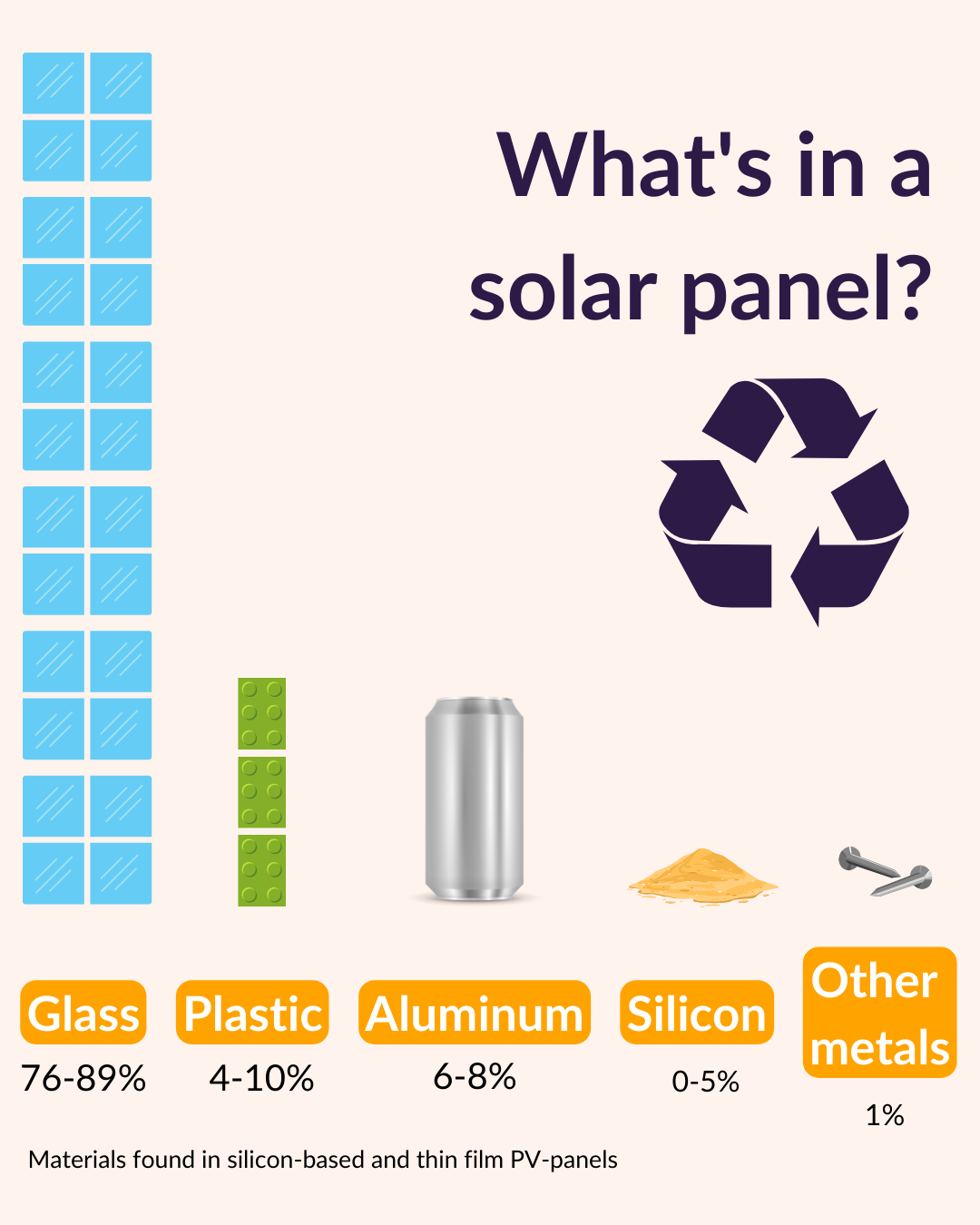
Our commitment to recycling with U.S. partners
We only use preferred U.S. recycling partners that have been thoroughly evaluated by the Solar Energy Industry Association (SEIA).
Recycling facilities that have been vetted by SEIA:
- Must collect and process in the U.S., no exporting
- Must be accredited
- Must strive for maximum material recovery and second life usage
- Must work sustainably and promote sustainability
Lightsource bp is a board member of SEIA. Together, we are dedicated to responsible end-of-life management and are proactively developing collection and recycling processes for the solar industry as a whole.
Learn more about our Responsible Solar approach
What is Responsible Solar?
Learn about our commitment to developing Responsible Solar projects for people and the planet
People & communities
Learn about our commitment to maximizing the social benefits of our solar projects
Energy
Our primary purpose: delivering affordable, renewable energy through responsibly developed solar and storage projects

